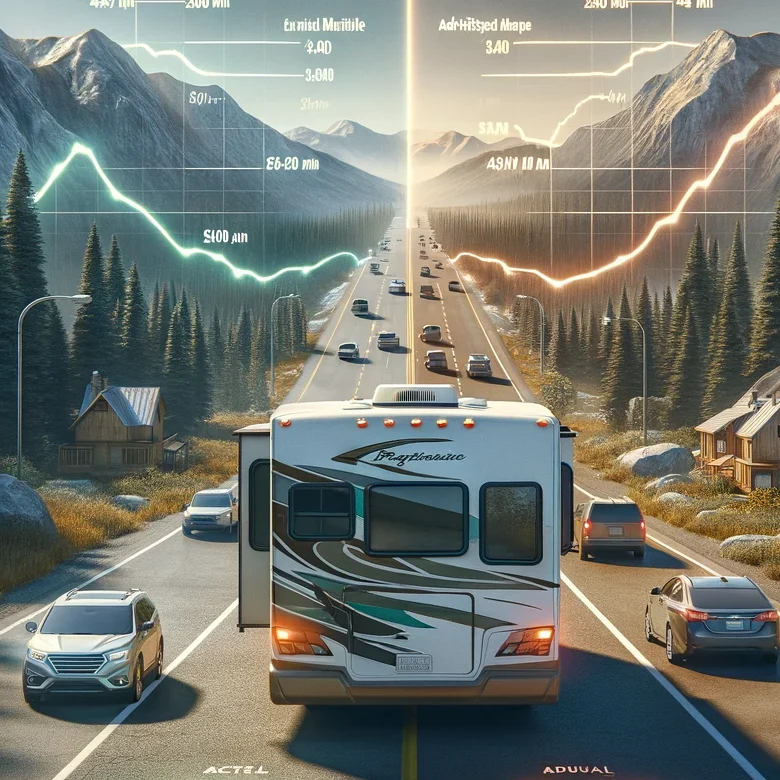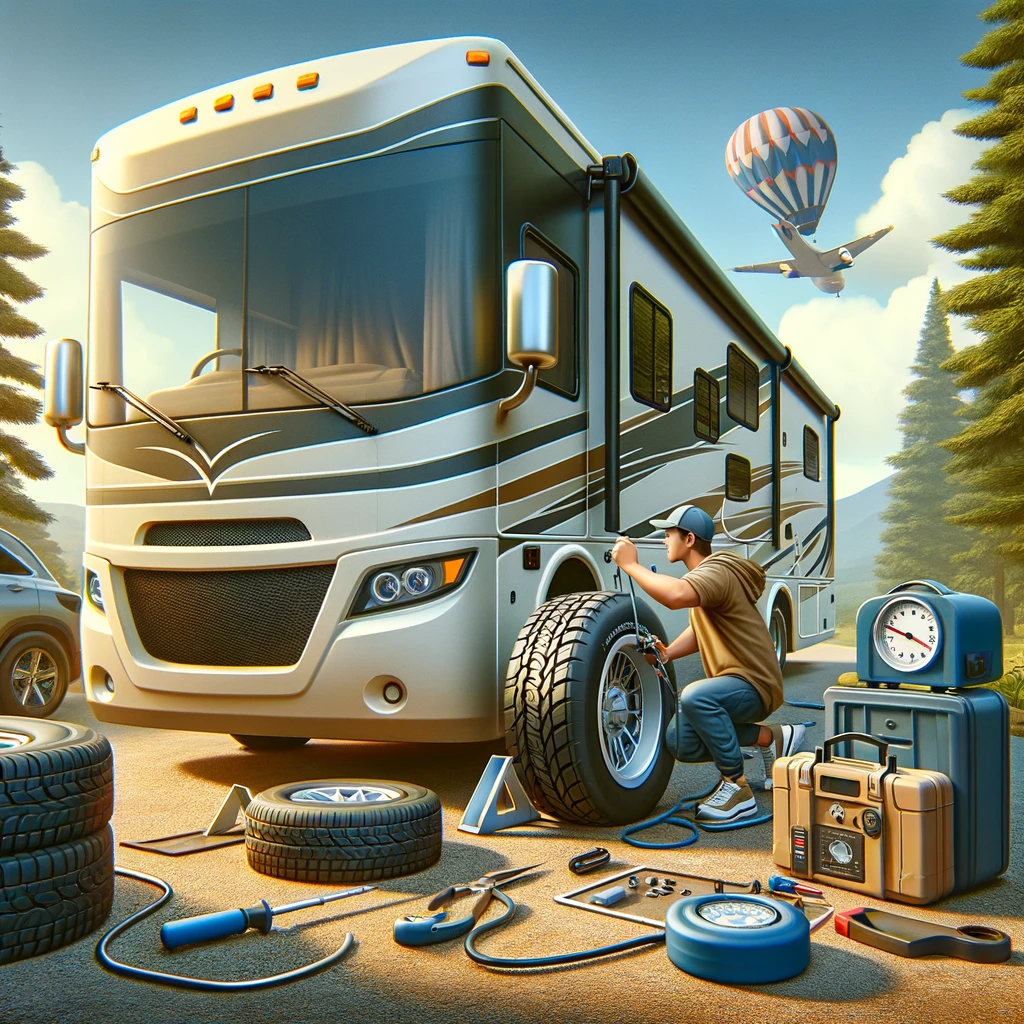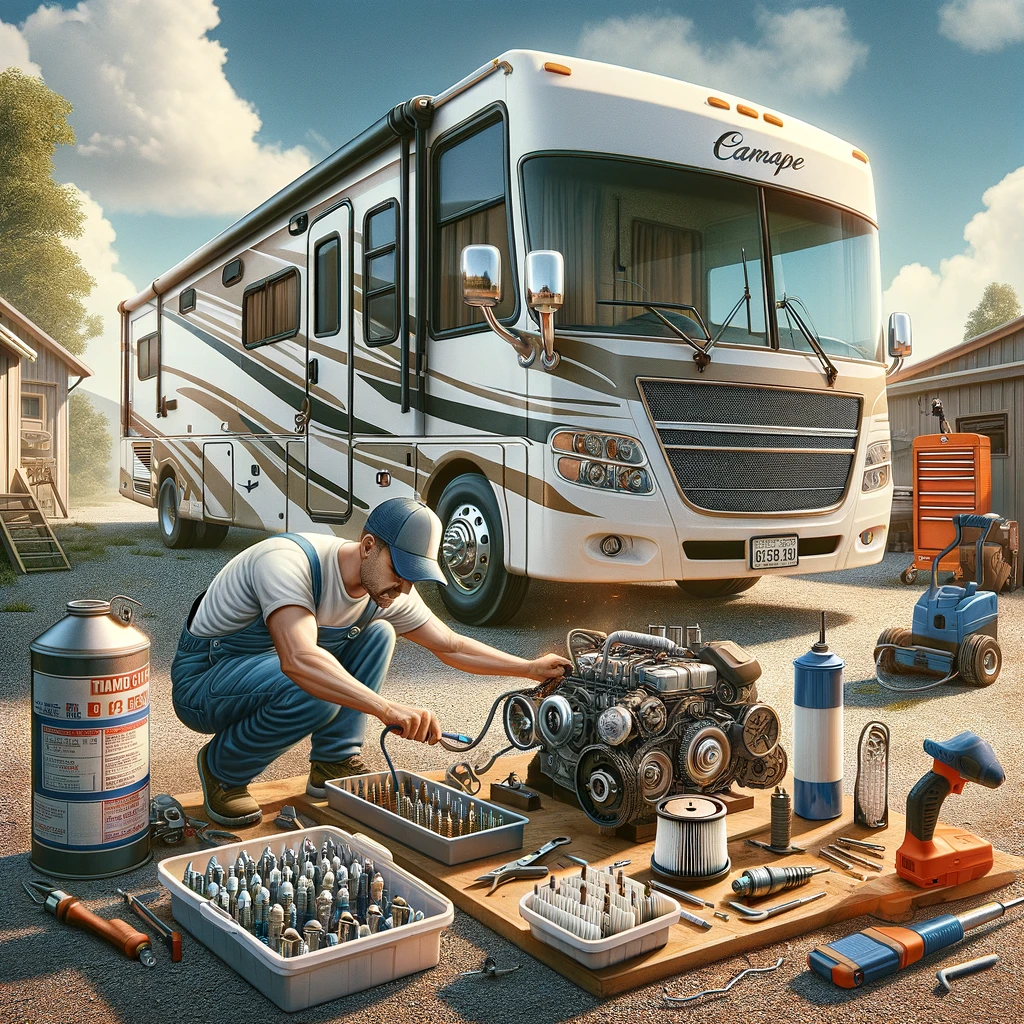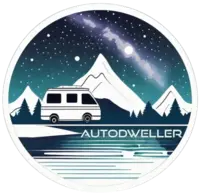Gas Mileage Tips for Van Life in 2024!
Importance of Fuel Efficiency When Living in a Van
Fuel can be one of the biggest expenses you’ll face when it comes to the true costs of van life. With fluctuating gas prices and long distances to cover, achieving good gas mileage can significantly impact your budget and your travel plans.
In the sections below, we’ll provide some tips that can help you maximize your van’s gas mileage, making your van life experience both economical and a little better for the environment.
Basics of Van Gas Mileage
Gas mileage is often boiled down to a simple figure—miles per gallon (MPG) or kilometers per liter (km/l), depending on your location. But it’s much more than just a number on your dashboard.
It’s an index of your vehicle’s efficiency, representing the distance your van can travel on a single tank of fuel. The higher the MPG or km/l, the more distance you can cover without needing to refill, thus reducing travel expenses.
Factors Affecting Gas Mileage
Several variables can impact your gas mileage, some of which you can control, and some you can’t. These include aerodynamic drag, weight, tire pressure, and even the type of fuel you use.
Being aware of these factors can help you make informed decisions that go beyond simply choosing a vehicle based on its stated MPG.
Real-World vs. Advertised Gas Mileage
Manufacturers often advertise the ‘ideal’ gas mileage for their vehicles based on standardized testing conditions. However, these conditions rarely match the realities of van life, where varying terrains, elevations, and speeds can all impact fuel consumption.
It’s essential to track your actual MPG over time for a more accurate picture of your fuel efficiency.

Why Gas Mileage Matters
In van life, every mile counts, not just because of the fuel costs but also because of the impact on your overall budget and itinerary. When you live in your vehicle, the costs of fuel can quickly add up to a significant portion of your expenses.
Efficient gas mileage allows for extended travel, less frequent fill-ups, and contributes to a lower environmental footprint.
By deepening your understanding of what gas mileage is and how it is affected, you can take proactive steps to improve it, making your van life adventure more sustainable and budget-friendly.
Factors Affecting Vans Gas Mileage
Weight
When it comes to van life, every extra pound matters. More weight means your engine has to work harder to move the vehicle, resulting in decreased fuel efficiency. It’s not just about decluttering; it’s about optimizing your van’s weight for better gas mileage.
Make strategic decisions about what to bring along, prioritizing multi-functional items and ditching unnecessary luxuries.
Engine Type and Size
Understanding your engine is like knowing the heart of your van. While smaller engines generally use less fuel, they might lack the power needed for certain terrains or carrying heavy loads.
Conversely, larger engines offer more power but usually consume more fuel. Understanding the balance between power and efficiency can help you optimize your engine’s performance for your specific travel needs.
Fuel Types: Diesel vs. Gasoline
The choice between diesel and gasoline can have long-term implications for van lifers. Diesel engines usually offer better fuel economy and are more efficient for long-haul driving.
However, diesel fuel can be pricier and less available in some areas. Gasoline engines may be less fuel-efficient but are generally cheaper to maintain and repair. Each has its pros and cons, and understanding these can help you make an informed decision for your van life journey.
Tips for Improving Van Gas MileageÂ
Tire Maintenance
Tires are your van’s point of contact with the road, and their condition plays a significant role in fuel efficiency. A well-maintained set of tires reduces rolling resistance, allowing your van to move more freely and use less fuel in the process.

Tire Pressure
Overlooking tire pressure is a common but costly mistake. Under-inflated tires create more friction with the road, forcing your engine to work harder and consume more fuel. Always keep a tire pressure gauge handy and check the pressure regularly, adjusting it to your manufacturer’s specifications.
Rotating and Balancing Tires
Tire wear isn’t uniform; front tires usually wear out faster than rear ones. Regularly rotating and balancing your tires ensures even tire wear, which in turn improves gas mileage by maintaining optimal contact with the road.
Engine Tunes
Tune-ups are your vehicle’s equivalent of a health checkup, ensuring all systems function smoothly. A well-tuned engine not only prolongs the life of your van but also maximizes fuel efficiency.
A typical tune-up involves changing the oil, checking the spark plugs, inspecting belts and hoses, and checking other crucial components. These seemingly minor maintenance tasks can collectively improve your vehicle’s gas mileage by ensuring optimal engine performance.
Neglected engines can underperform and consume more fuel. Regular tune-ups, by contrast, keep your engine in prime condition, helping you get those extra miles per gallon that can make all the difference on a long trip.

Smart Driving Habits
Acceleration and Deceleration
Believe it or not, the way you press the gas and brake pedals has a direct impact on your fuel economy. Jerky movements and abrupt stops make your engine work harder, thereby using more fuel.
Smooth acceleration and gradual deceleration are the names of the game. By avoiding rapid speed changes, you minimize the work your engine has to do, which in turn helps you save fuel. It’s a bit like cycling; maintaining a consistent pace is less exhausting than repeatedly speeding up and slowing down.
Hidden Costs of Rapid Changes
Abrupt driving behaviors can increase your fuel consumption by as much as 20%. That’s not just an impact on your wallet; it’s also additional wear and tear on your vehicle, leading to more frequent maintenance and repair costs.
Speed Management
Contrary to popular belief, faster isn’t always better when it comes to fuel efficiency. Each vehicle has an optimal speed range for fuel economy, often between 45 and 65 mph for most vans.
Utilizing Cruise Control
Cruise control can be a useful tool for maintaining consistent speed on highways, thereby improving fuel efficiency. However, it’s not a one-size-fits-all solution. In hilly or curvy terrains, cruise control can actually make your engine work harder to maintain that set speed, reducing fuel efficiency.
By adopting smart driving habits, you don’t just become a safer driver; you also become a more fuel-efficient one. These are changes you can implement today, and they’ll make a notable difference in your fuel consumption over time. Adopting these habits could mean fewer stops at the gas station and more money for your van life adventures.
Route Planning Gas Mileage Tips
Avoiding Congested Areas
We all dread bumper-to-bumper traffic; it’s stressful and a significant fuel waster. Idling and constant stop-and-go driving can decimate your gas mileage.
Plan your routes to avoid congested areas, especially during peak hours. Utilize GPS apps that offer real-time traffic updates to steer clear of these gas-guzzling scenarios.

Opting for Flat Terrains When Possible
Mountainous and hilly terrains can be breathtaking but come at the cost of reduced fuel efficiency. The constant uphill climbs and descents make your engine work harder.
Whenever possible, choose routes that are flatter. It might not always be the most scenic option, but it’s certainly more fuel-efficient.
Avoiding Stop-and-Go Traffic
Each time you bring your van to a halt, it requires a considerable amount of energy to get moving again. This start-stop pattern is not just hard on your engine but also hard on your fuel tank. Opt for routes with fewer traffic signals, stop signs, and busy intersections to maintain a more consistent speed.
Planning your route wisely isn’t just about getting from Point A to Point B in the fastest time. It’s also about doing so in the most fuel-efficient manner. By being mindful of traffic patterns, road types, and terrain, you can significantly improve your van’s gas mileage, leaving you with more money in your pocket for adventures ahead.
Gas Shopping Tips
Using Apps to Find the Best Prices
Don’t leave it to chance or convenience when it comes to filling up your tank. Use fuel price comparison apps to locate the cheapest gas stations along your route. These apps often have real-time updates, allowing you to save significantly over time.
Best Times to Fill Up
Believe it or not, the time of day and even the day of the week can impact fuel prices. Early mornings during weekdays are generally the best times to fill up, as demand is lower. Weekends and holidays usually see a price hike. Planning your fill-ups around these times can lead to noticeable savings.
While it might be tempting to round up to the nearest dollar or fill your tank until it can’t take any more, topping off can actually be counterproductive. This practice not only risks spillage but also may result in you paying for gas that ends up as vapor, not liquid fuel in your tank.
Smart gas shopping doesn’t mean just finding the cheapest price per gallon; it’s about understanding the nuances that go into fueling up. By adopting savvy fueling habits, you can make every gallon go that much farther, extending the life of both your adventure and your wallet.
Additional Equipment & Effects on Gas Mileage
Roof Racks and Storage
Van Roof racks may offer convenient storage solutions, but they also disrupt your van’s aerodynamics, creating drag that can severely affect gas mileage. If you do opt for roof storage, aim for aerodynamic designs that minimize drag and consider removing them when not in use.
Fuel-Enhancing Additives
The market is flooded with products claiming to boost your vehicle’s fuel efficiency. While some fuel additives can make a slight difference, many offer negligible benefits.
Always research and read reviews before investing in these products. Additionally, consult your van’s manual to ensure any additive is compatible with your engine type and fuel.
By being selective about additional equipment and skeptical about fuel-enhancing additives, you can steer clear of choices that weigh down your fuel efficiency.
Author
-

Zaara, a kindred spirit of the open road, has nurtured a deep-seated love for RV travel since her childhood. Journeying with her parents, she learned early on to cherish the little things that make life rich and fulfilling. This emotional depth and appreciation for simplicity have become the cornerstone of her life philosophy. A firm believer in the idea that true happiness is found in nature's embrace, Zaara continues this legacy of exploration alongside her husband, Augustus. Her passion extends beyond landscapes to the joy of connecting with life's purest forms - the unconditional love of dogs and the innocence of babies. These connections reflect her nurturing soul and emotional acuity. Zaara is also a culinary enthusiast, delighting in creating meals that blend flavors from their travels, infusing each dish with memories and love. Her expertise lies in living fully, finding joy in every moment, and inspiring others to seek happiness in life's simple, natural wonders.
View all posts

